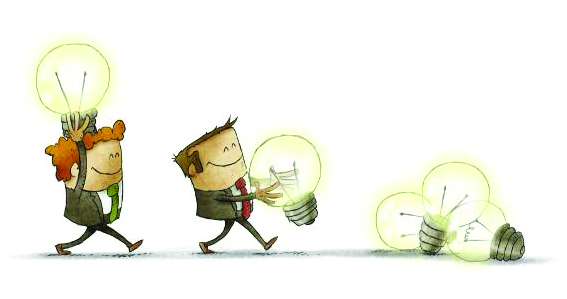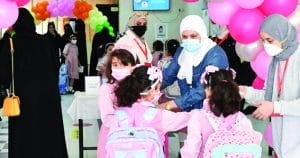Knowledge is an essential aspect of human existence, as it is the foundation on which an individual builds his understanding of the world, and with it he can overcome the complexities of life, make sound decisions, and contribute to the progress of society. Here comes the question, is the acquisition of knowledge the result of thinking? Or attainment?
Before answering, dear reader, it should be noted that thinking and attainment are two different concepts. Thinking is a mental process used by the learner to absorb, analyze, interpret, and reach conclusions about information, and includes the use of logic, focus, and deep analysis of concepts.
As for attainment, it is the extent to which an individual absorbs that knowledge and acquired skills. Achievement depends on the individual’s ability to absorb information, the extent of his learning, and his ability to successfully apply what he has acquired. It can also be measured by assessments, tests, and practical performance in various fields.
Thinking is related to the process of attainment and learning, and this is evident in the following:
Thinking helps to understand concepts and information more deeply, through deep analysis and interaction with educational materials.
Thinking enhances the development of the learner’s mental and thinking skills, as it contributes to developing the ability to analyze critically, think creatively, solve problems, and make sound decisions.
Thinking is part of active learning; it encourages the learner to participate, interact, explore concepts, and apply them; instead of accepting them superficially.
Thinking is a powerful tool for solving problems, as deep analysis and critical thinking can help the learner understand the roots of any problem, and provide innovative and effective solutions.
Thinking helps the learner evaluate his ideas and beliefs, as analysis can help interact with different points of view, and evaluate them logically and fairly.
Thinking is a major pillar of creativity and innovation, and the learner can develop new ideas with it.
Now, we can ask this question: What methods can you, as a learner or a teacher, use to develop your thinking?
Make sure to write your diary. Keep a journal where you can write down your thoughts, experiences, observations, and questions. This practice helps you to think deeply about your ideas and encourages self-reflection.
Take the time to slow down your thinking process; avoid jumping to conclusions or accepting superficial interpretations; process information analytically and critically; and consider different perspectives before forming your own opinions.
Use the Socratic questioning technique to explore ideas and concepts more deeply. Ask probing questions that challenge assumptions, clarify understanding, and encourage critical thinking. Some popular questions include, “What evidence supports this claim?” or “What are the possible counterarguments?”
Create a visual mind map of your ideas using mind-mapping techniques. Start with a central concept and then branch out into related subtopics; this helps you organize your thoughts, build connections, and explore different aspects of the topic. Expose yourself to a variety of different perspectives and opinions, and engage in discussions with people who have different opinions and backgrounds. This will help you expand your understanding and develop a broader perspective.
Read widely and deeply on a variety of topics. Choose an article, book, or research paper that stimulates your thinking to explore complex topics. Take notes, highlight key points, and interact with the reading material to deepen your understanding.
In short, knowledge is a combination of both; it is the product of thinking and learning. Knowledge is formed through the process of thinking, analysis, and inference, then it is acquired through study and learning, and it is acquired from different sources, such as books, articles, and educational courses. Therefore, it can be said that the journey begins with thinking, which contributes to the formation of knowledge and ends with learning, which contributes to its acquisition.
Marwan Ahmed – Egypt




